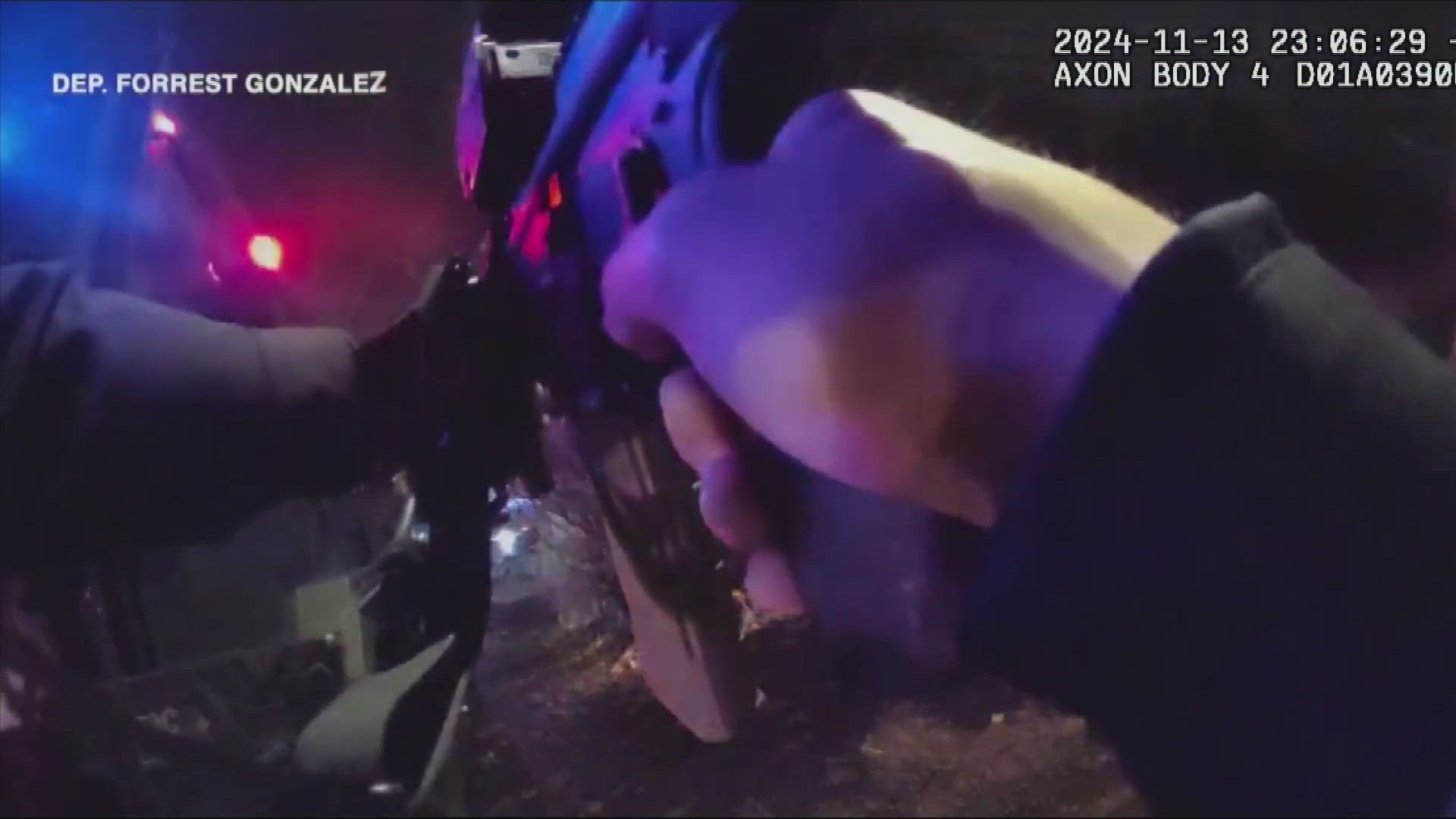PORTLAND -- Confidential files kept by the Boy Scouts of America on men they suspected of child sex abuse were released Thursday after a two-year-long Oregon court battle.
The release of the files on Thursday by Portland attorney Kelly Clark revealed 20,000 pages of documents the Scouts kept on men inside--and in some cases outside--the organization who were believed to have committed acts of abuse.
Clark's office went through the files to redact the names of the victims, leaving in the names of men suspected of abuse.
They are sociopath geniuses, he told KGW. They fool everybody, and then they are able to coerce convince or threaten these kids to stay silent. And you see that play out over and over again in the files.
The court-ordered release of the 'perversion files' from 1965 to 1985 has prompted the organization to pledge that they will go back into the files and report any offenders who may have not been reported to the police when alleged abuse took place.
That could prompt a new round of criminal prosecutions for offenders who have so far escaped justice.
What we're looking at here represents as many as 6,000 to 24,000 boys abused in Boy Scouting, said Clark.
The ruling was triggered by a 2007 lawsuitfiled by Clark on behalf of former Boy Scout Kerry Lewis of Oregon. Lewis, now 40, sued the Boy Scouts of America on grounds that they failed to protect him from the abuse he suffered as a young teen at the hands of his assistant scoutmaster in the 1980s.
Scout leaders accused of child molestation were in a candy store, said attorney Paul Mones in a press conference Thursday.
Boy Scouts executives at the group's national headquarters in Irving, Texas began compiling the files nearly 100 years ago for the purpose of keeping child predators out of Scouting's ranks.
For the first time ever the public will actually see, not just hear about, but see what the Boy Scouts knew about child abuse in their midst, and what they did and did not do about it, Clark said.
Release of files ordered after landmark lawsuit:
The man who sexually abused Kerry Lewis over a two year period, Assistant Scoutmaster Timur Dykes, confessed in 1983 to a Scouting leader, a Mormon bishop, that he had molested 17 boys in his troop. According to testimony at trial, instead of warning parents or calling police, the bishop slowly allowed Dykes back into Scouting. The next year Dykes began molesting Kerry Lewis when the Scout was 13. Dykes was convicted of the crimes and served prison time in Oregon. He is currently listed as homeless in Multnomah County.
A jury awarded Lewis $18.5 million in 2010, concluding that the Boy Scouts knew about the problem and failed to protect him. The files to be released Thursday were presented to the jury by plaintiff attorneys as proof that the organization had collected so many records on child molesters that they had an obligation to warn parents and Scout leaders that pedophiles were accessing victims through Scouting.
They were asleep at the switch. They didn't pay any attention to what was in their files and just kept everything the same, Clark said of the Scouts. Just like they said to kids when the clouds gather and you start hearing the thunder, get off the ridge. They trained kids on how to avoid getting hit by lightning. Why didn t they train kids on how to avoid getting molested? You see, that s where they dropped the ball.
The fact that the Boy Scouts kept detailed files on thousands of men it had banned from Scouting -- some, like Dykes, active child molesters, others simply for being gay or suspected of it -- came to light during civil lawsuits like Lewis' case. But the majority of those suits filed by former Scouts ended in quiet settlements. The Lewis case was different. It went to trial. The Boy Scouts waged a five-year legal battle to keep the documents away from public view which led ultimately to an Oregon Supreme Court ruling. The Court ruled that since the files were admitted into evidence in open court in the Lewis case, the records belonged to the public and should be produced for public inspection.
Patterns of abuse revealed:
Attorneys releasing the files Thursday say they reveal patterns of abuse. Single men in their 30s and 40s were the most likely to be accused of molestation. These men spent lots of one-on-one time with their victims. Many exhibited the Pied Piper phenomenon charismatic men, popular with young Scouts for their expertise in outdoor skills like hunting and climbing.
Reaction by top Scout:
Youth protection been with us for a long time, we've been a great organization on that. To the extent that there have been examples in the past of 40 years ago, I can't explain those. All I can tell you is what we have today. And do I feel comfortable today? You bet. I think you're far safer having your child in the Boy Scouts of America than anywhere else, said Perry from headquarters in Texas.
Warren Report shows Scouts file system worked well:
Top Scout leaders deny the collection of files helps to identify patterns of abuse or proves the problems were ignored. In preparation for release of files to the public, the organization hired an independent review of the files by a Professor of Psychiatry, Dr. Janet Warren. The Warren Report found Nothing in these files changes the stark fact that there has never been a profile of a child sexual offender. In reviewing the entirety of these files, I was struck by the wide range of individuals charged with sexual misconduct. No single profile of a suspect offender emerges. While some have attempted to categorize these files as a treasure trove of information about pedophiles and their actions, that simply is not the case, wrote Warren.
Warren went on to write that the process of creating files was a smart move on the part of the Boy Scouts which did keep children safe. In summary, my review and analysis indicate that while it was not perfect, and mistakes clearly occurred, BS A's IV (Ineligible Volunteer) File system has functioned well in keeping many unfit adults out of Scouting. Time and again in reviewing these files, I was struck by BS A's pursuit of information regarding a suspected sexual offender. These claims of abuse were not swept under the carpet and ignored. Rather, suspected offenders were pursued and often times barred from Scouting over their fervent objection and at time even the opinion of the local community, wrote Warren.
Clark said making the Scouts files public will help other organizations set policies for dealing with molesters.
The reason to put this stuff out there is because it protects children, Clark said. Athletic leagues, schools, churches, camping organizations can say: 'Wow, let's not make those mistakes, let's go here, not there.'
Current safety policies:
By the 1990 s the Boy Scouts began to implement policies specifically aimed at keep their members from sexual abuse. Currently every registered Scouter must take their Youth Protection training. In 2008 they instituted background checks for all volunteers and after the Lewis case in 2010, Scout policy changed to require all suspected abuse be reported to law enforcement.



